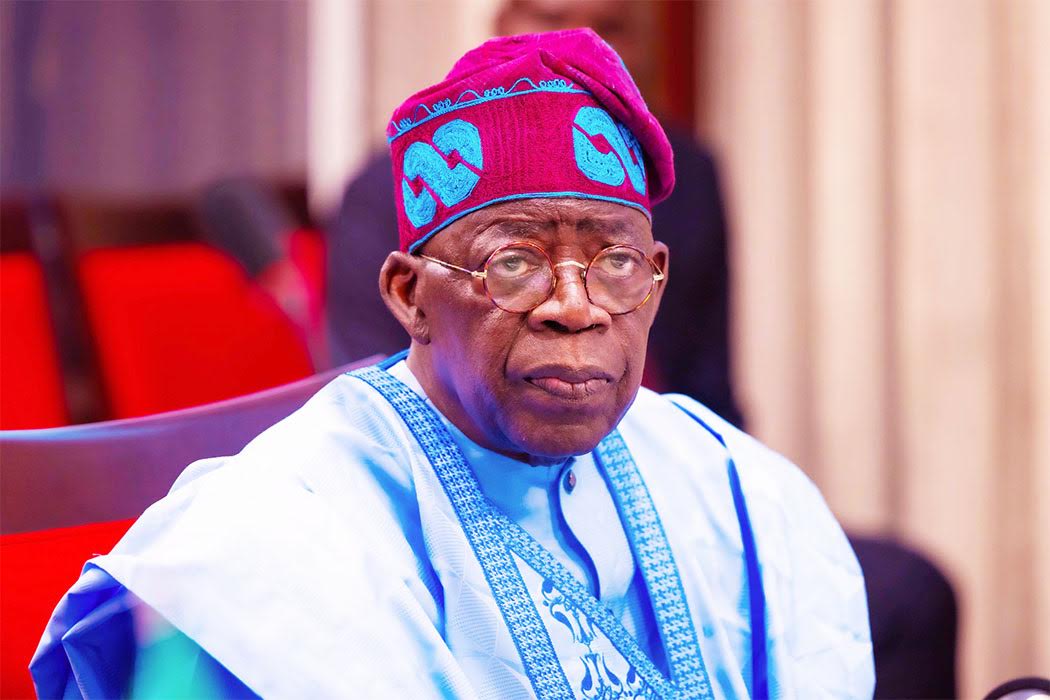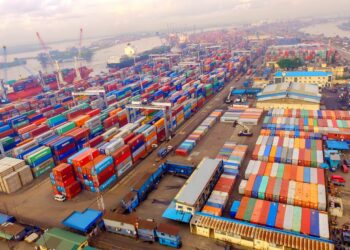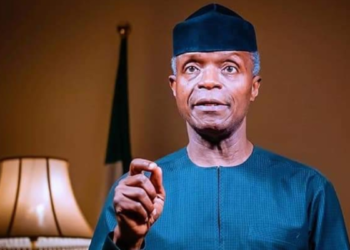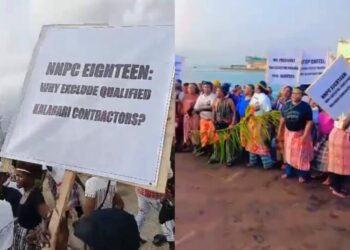President Bola Tinubu, on Monday, stressed the importance of fiscal governance as the lifeblood of national development, insisting that without transparency, accountability and sound management of public resource, no nation, regardless of its natural wealth, can prosper.
Tinubu stated this at the opening of a National Conference on Public Accounts and Fiscal Governance, organised by the Public Accounts Committees (PACS) of the Senate and House of Representatives, in Abuja.
Represented by the Minister of State for Finance, Dr Doris Uzoka-Anite, the president said for too long, Nigeria’s economy had been burdened by structural inefficiencies, fiscal leakages and overreliance on oil revenues.
Tinubu said his administration was channeling the funds saved from the removal of fuel subsidy into critical infrastructure, social safety nets, and targeted economic reforms aimed at rebuilding public trust and promoting inclusive development.
According to him, the removal of the subsidy, though painful, was necessary to free up fiscal space and redirect national resources to sectors that benefit the broader population.
“In 2022 alone, Nigeria spent over N4 trillion on fuel subsidies, more than we allocated to capital expenditure. This was not only physically unsustainable, it was unjust. A subsidy that disproportionately benefited the affluent, encouraged smuggling, and bred inefficiency, was neither equitable nor strategic.
“Since its removal, we have redirected those funds into targeted interventions, expanding our social safety nets, improving public transportation, and financing critical infrastructure projects. Most importantly, we have strengthened our fiscal buffers, making Nigeria more resilient to external shocks,” Tinubu said.
The president stressed that the newly assented tax reform laws will simplify compliance, expand the tax base, digitise collections, and harmonise multiple taxes to ease doing business in Nigeria.
“These reforms are designed to widen the tax base by integrating the informal sector, simplify compliance for small and medium-sized enterprises, digitise revenue collection to reduce human interference and eliminate leakages, and harmonise multiple taxes to make doing business easier in Nigeria,” he said.
He further said the country was laying the foundation for a self-sustaining economy that gradually moves away from dependence on oil revenues to a more diverse and inclusive revenue base.
President Tinubu also emphasised on economic diversification as a top policy objective, pointing out agriculture, manufacturing, digital services, renewable energy, mining, and the creative economy as focal sectors receiving targeted investments and reforms.
Tinubu identified new initiatives like the National Credit Guarantee Company, which aims to support local production, empower SMEs, and boost non-oil exports.
“These efforts go beyond mere economic metrics, they are creating jobs, fostering innovation, building economic resilience, and strengthening our national security and long-term stability,” he said.
He called on the National Assembly, especially the Public Accounts Committees, to uphold their constitutional duty with “integrity, courage, and independence.”
“Oversight is not a political tool. It is a patriotic duty. Every project must be guided by value for money, and every budget must reflect the new priorities of our people.
“Nigerians must be empowered to ask questions, scrutinize public accounts, and demand accountability. Good governance is a shared responsibility,” he said.
In his remarks, Senate President Godswill Akpabio charged the Public Accounts Committees of the National Assembly to exercise their constitutional powers in enforcing transparency and accountability in government, warning against the growing trend of non-compliance with legislative summons.
Represented by Senator Abdul Ningi from Bauchi, Akpabio said the country’s progress is tied to effective fiscal oversight, which he noted as central to the mandate of the PACs.
“The Public Accounts Committees are not just legislative creations, they are constitutional bodies empowered by Sections 80, 81, and 88 of the Constitution to act as watchdogs of public funds. They have the power to summon any individual, public or private, to account for the use of government resources.
“Refusal to honour legislative invitations, especially from the PACs, is unacceptable. This trend must be stopped. Heads of agencies, including the Head of Service and others, must recognise the authority vested in the legislature by the 1999 Constitution as amended,” he said.
Akpabio also lamented the challenges the legislature faced in executing oversight functions, particularly when dealing with complex institutions like the Central Bank of Nigeria (CBN), the Nigerian National Petroleum Company Limited (NNPC), and the Federal Inland Revenue Service (FIRS).
“The legislature is being incapacitated in many ways. We need expertise and tools, especially digital technologies, to carry out oversight over 250 million Nigerians. The task is enormous but must be done,” he said.
For his part, Speaker of the House of Representatives, Rt. Hon. Tajudeen Abbas expressed concern over Nigeria’s unresolved fiscal infractions, saying over N300 billion in public funds flagged by audit reports remain unrecovered.
Abbas who was represented by the House Leader, Hon. Julius Ihonbvere, described the situation as unacceptable and warned that fiscal responsibility cannot thrive where audit queries are routinely ignored without consequence.
“We have advocated for the timely implementation of audit recommendations and increased collaboration with anti-corruption bodies to ensure that those found wanting are held to account. In addition, we have advocated for mandatory compliance and sanctions for audit infractions, closing long-standing loopholes that allow MDAs to disregard audit queries with impunity,” he said.
Abbas added that fiscal responsibility cannot thrive in the absence of consequences for mismanagement.
“The House is fully committed to supporting the integration of technology into public sector audit and accounting processes. We have championed the digitization of audit and financial reports, promoted the use of real-time expenditure tracking tools, and encouraged MDAs to adopt automated audit software,” he said.
Chairman of the Senate Public Accounts Committee (SPAC), Senator Ahmed Wadada, called on Nigeria’s public institutions and leadership across sectors to recommit to a new era of fiscal integrity and responsible governance.
“The vision before us is clear: To establish a culture of fiscal discipline anchored on transparency, accountability, and citizen-focused service delivery.
“We have seen budgets passed without adequate oversight. We have witnessed funds released without measurable outcomes. And we have, too often, overlooked the voices of citizens in matters that directly affect their livelihoods,” he said.
Similarly, Chairman of the House Public Accounts Committee, Hon. Bamidele Salam said the critical areas of reform that the conference will address include budget and procurement transparency, financial accountability, regulatory and legislative oversight amongst others.
“We recognise that our nation’s progress is inextricably linked to the effectiveness of our fiscal governance systems. It is our collective responsibility to ensure that public resources are managed in a lawful, transparent, prudent, judicious, accountable, and efficient manner.
“In the last two years of my stewardship as the Chair of this constitutional committee in the House of Representatives, I have seen the need, more than ever before, to address fundamental issues around the timeliness and quality of our financial reporting systems, the integrity of our budgeting and procurement process, the capacity of our supreme audit institution, and the successful implementation of our shared vision as contained in Chapter 2 of the 1999 Constitution as amended,” he stated.
President of the African Organisation of Public Accounts Committees (AFROPAC), Hon. Medard Lubega Sseggona, hailed Nigeria for taking continental leadership in promoting fiscal transparency and sustainable public finance management, declaring that the country now stands as a strategic anchor in Africa’s accountability architecture.
“This forum is a clear demonstration of Nigeria’s commitment to strengthening public financial management and enhancing transparency in championing sustainable development. It speaks directly to the collective challenges we face across the continent in our shared aspirations.





